COP30: Putting forests to the fore in combating the climate crisis
20 November 2025, Belém

Speakers presented a shared message: forests are indispensable in tackling the climate crisis—yet their potential can only be realized through inclusive governance, scientific knowledge, sustainable management, and adequate financing. © Gen Totani/FFPRI
The vital importance of forests in both mitigating and adapting to the climate crisis took centre stage at a seminar entitled “Roles of Forests in Climate Crisis”, held on 14 November 2025 at the Japan Pavilion during the 30th Conference of the Parties (COP30) to the United Nations Framework Convention on Climate Change (UNFCCC). The event was hosted by the Forestry and Forest Products Research Institute (FFPRI) and co-organized by the Forestry Agency of Japan and the International Tropical Timber Organization (ITTO), and was also livestreamed globally.
ITTO Executive Director Sheam Satkuru delivered opening remarks alongside Eiji Tanimura, Deputy Director-General of the Forestry Agency of Japan. Ms Satkuru underscored the accelerating impacts of climate change—including wildfires, droughts, floods and storm surges—and called for urgent collective action to harness the full potential of forests as both climate solutions and pillars of resilience.
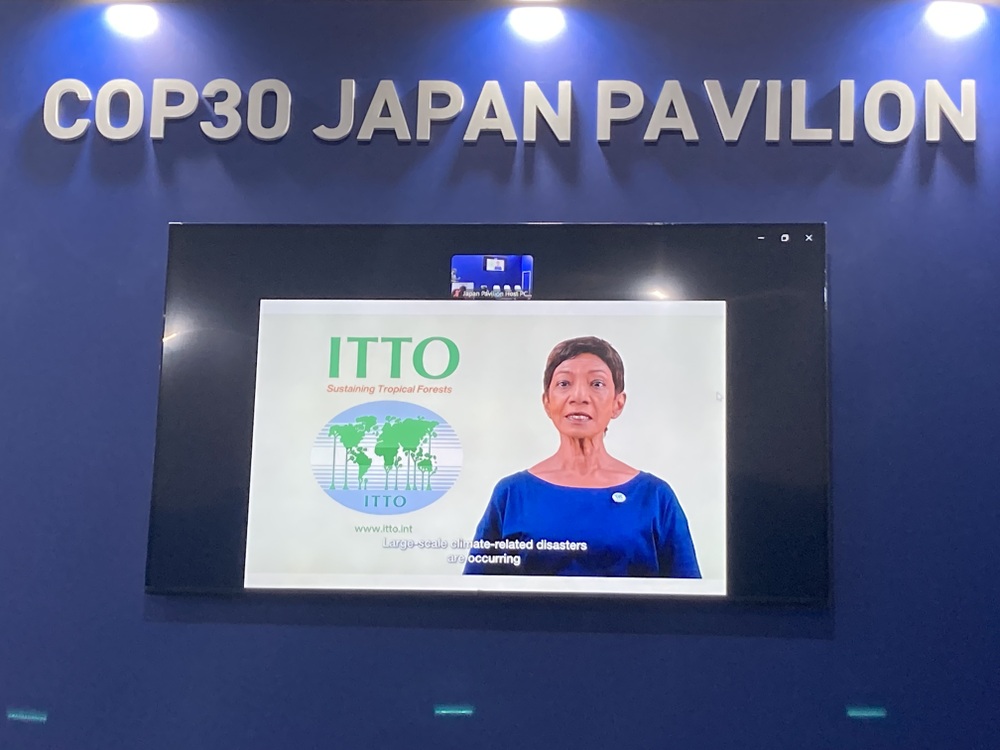
“Forests are scientifically proven to play a critical role in both mitigation and adaptation,” she said. “From absorbing atmospheric carbon to serving as natural buffers that reduce disaster risks, forests are foundational to building resilient societies. Investments in forest conservation and sustainable use are climate-smart investments that deliver long-term social, economic, and environmental benefits.”
Local knowledge, women’s leadership and science-based management in focus
The seminar convened experts from Brazil, Africa and Japan who showcased diverse perspectives on the contributions of forests to climate mitigation and adaptation.
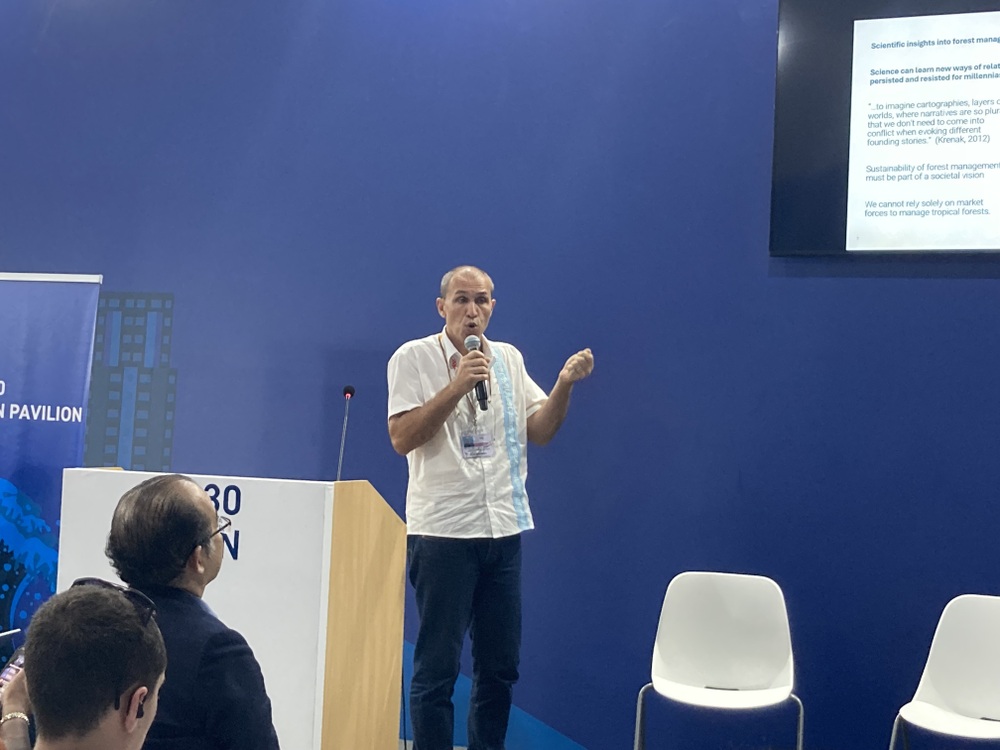
Lucas José Mazzei of Embrapa Eastern Amazon presented the long-running Bom Manejo collaborative project, supported by ITTO and the Government of Japan, which aims to strengthen community-based forest management in the Brazilian Amazon. Drawing on lessons from the Reserva Verde para Sempre, he emphasized that community-led forest management contributes not only to sustainable timber production, but also to social justice, territorial governance and the revitalization of traditional knowledge. Women’s empowerment, he noted, is central to effective and inclusive forest governance.
Scientific insights from long-term research indicate that sustainable tropical forest management needs careful consideration of species dynamics, cutting cycles, and residual stand conditions. “Tropical timber production can be perpetual,” Dr Mazzei stressed, “but it is inherently limited by area and must be embedded within a broader societal vision that goes beyond market forces.”
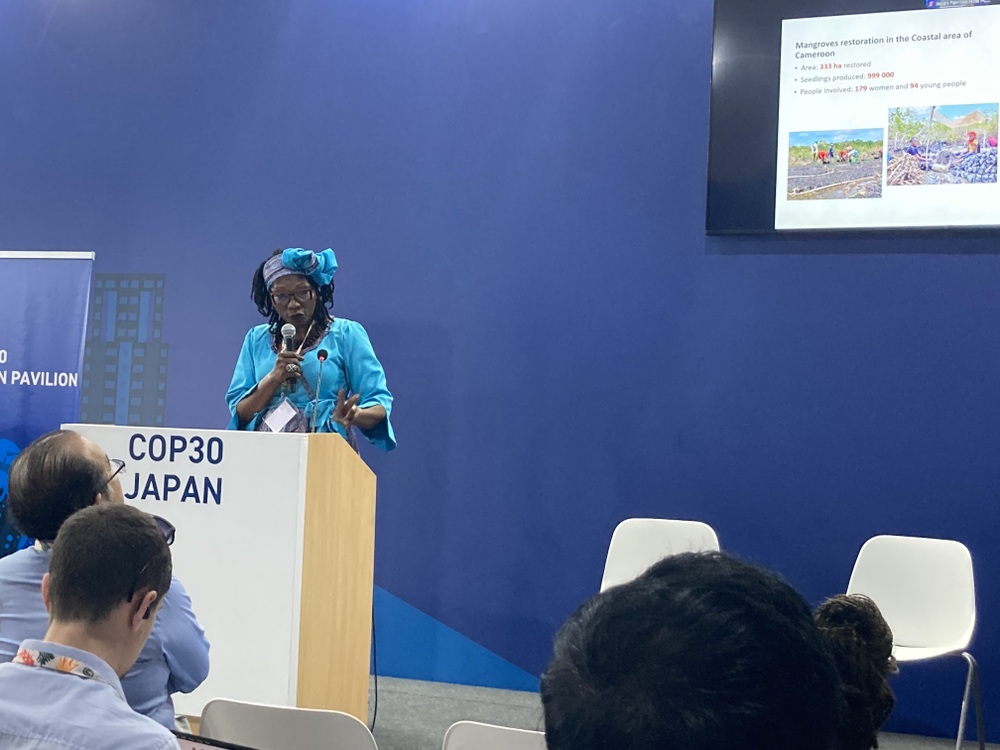
Representing the African Women’s Network for Community Management of Forests (REFACOF), Cécile Bibiane Ndjebet highlighted the leadership of African women in restoring degraded forests and mangroves in Cameroon, and shared initiatives supported by ITTO and Soka Gakkai in Togo and Benin. To date, women-led groups have restored more than 600 hectares of degraded ecosystems in these three countries alone, as well as over 2,000 hectares across Côte d’Ivoire, the Democratic Republic of the Congo (DRC), Ghana, and Equatorial Guinea.
Despite their achievements, Dr Ndjebet underscored that less than 0.04% of global climate finance reaches women-led organizations. “Women have agency, knowledge, and solutions,” she said. “If forests are to play a central role in addressing the climate crisis, we must mobilize adequate financing and secure land and tenure rights for women and youth.”
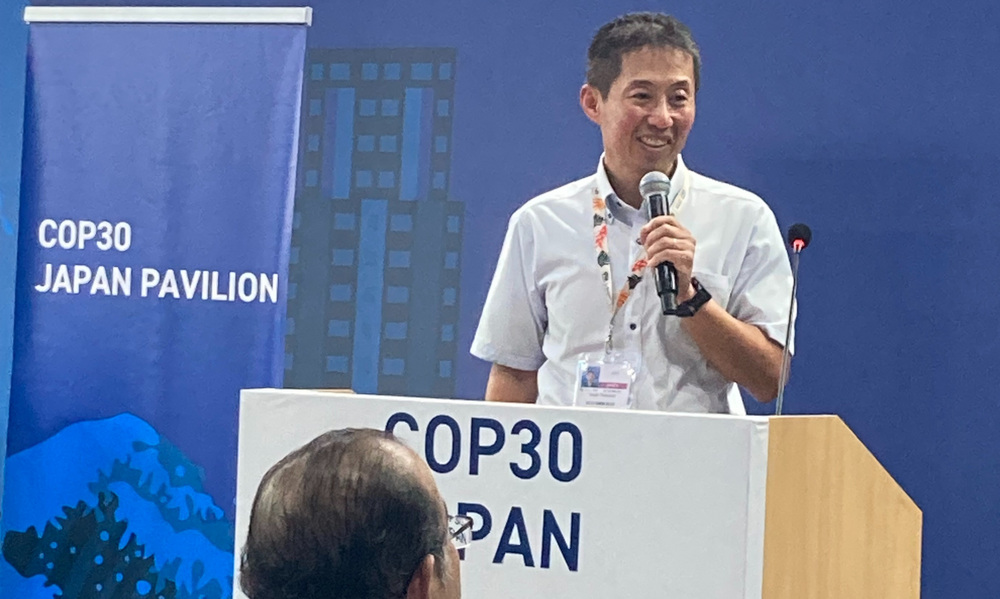
Japan’s forest sector innovations supporting decarbonization
Masato Okabayashi of the Forestry Agency of Japan presented the country’s efforts to advance climate action through sustainable forest management and expanded use of domestic timber. With forests covering 66% of Japan’s land area, and a growing stock of 3.5 billion m³, Japan is promoting a cyclical system of harvesting, wood use and reforestation to maintain healthy forests and maximize carbon storage.
Japan’s policies encourage the use of wood in public and private buildings, support technological innovation such as automated forestry machinery and laser-based resource surveys, and promote advanced wood products, including fire-resistant materials and cross-laminated timber (CLT). Expanding wood use in mid- and high-rise buildings is a key strategy for increasing long-term carbon storage in cities.
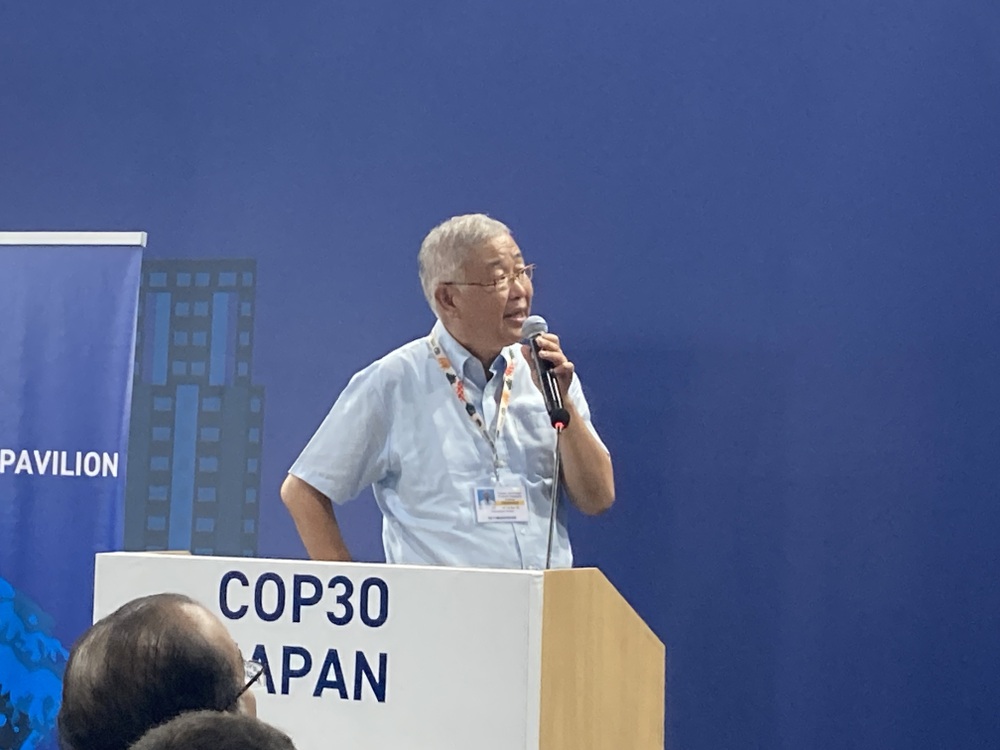
Forests as natural infrastructure for climate adaptation
Rounding out the session, Yasumasa Hirata of FFPRI discussed the indispensable role of forests in reducing disaster risks in mountainous and coastal regions. As extreme weather events intensify due to climate change, forest cover—and particularly root systems—plays a critical role in preventing surface collapse, reducing erosion, and mitigating floods.
In coastal zones, mangrove forests offer powerful protection against storm surges and coastal erosion. However, Mr Hirata noted that mangrove reforestation efforts face challenges, including overcrowding due to logging bans, insufficient post-planting maintenance, and changes in sedimentation. Strengthening mangrove conservation and targeted reforestation are therefore urgent priorities for safeguarding vulnerable coastal communities.
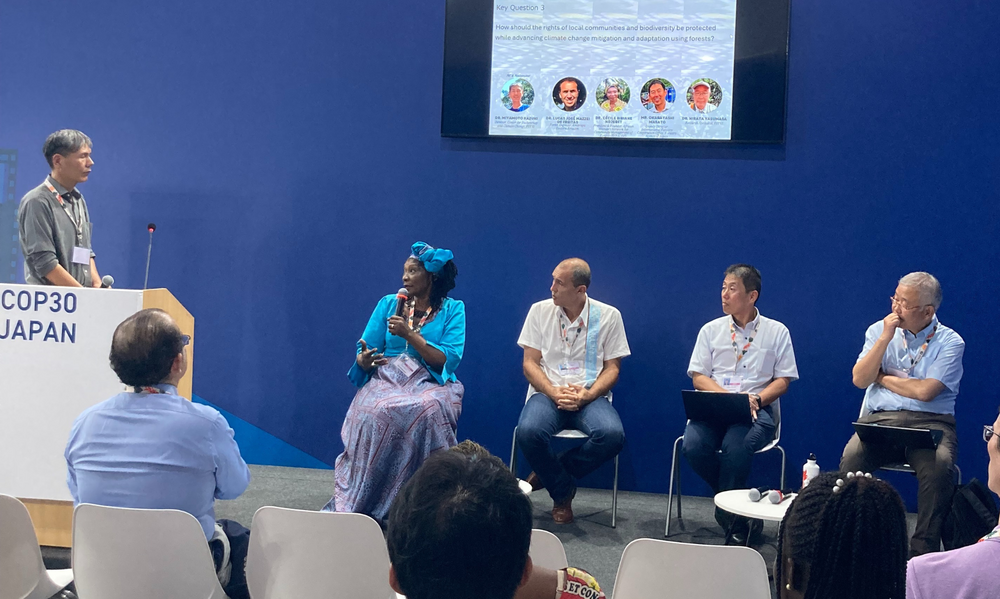
A call for collaboration and investment
The seminar concluded with a shared message: forests are indispensable in tackling the climate crisis—yet their potential can only be realized through inclusive governance, scientific knowledge, sustainable management, and adequate financing.
“ITTO remains fully committed to working with our members and partners to mobilize the financing and partnerships needed for tropical forests to realize their full potential,” said Ms Satkuru. “Together, we can build a resilient, sustainable and inclusive future for all.”
Watch the event recording below: